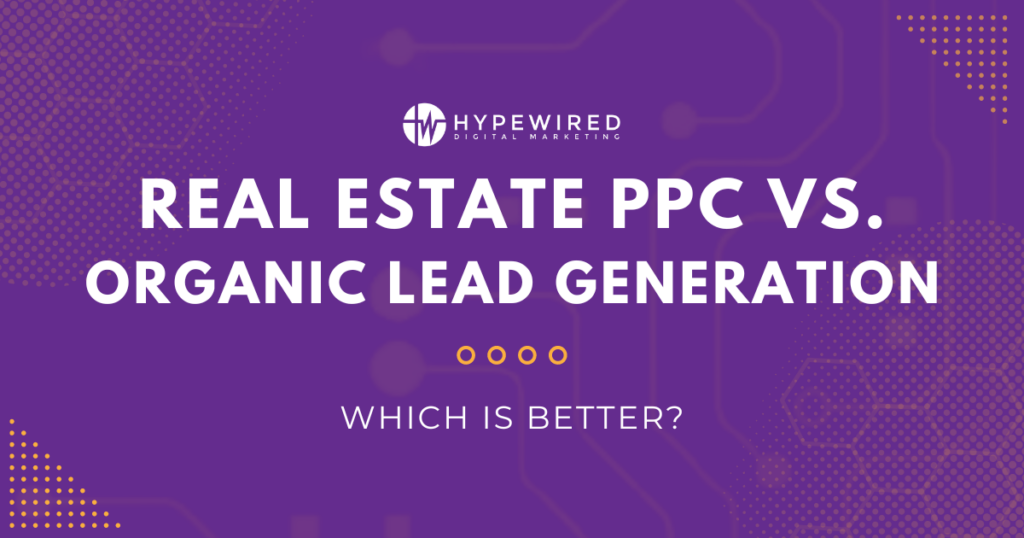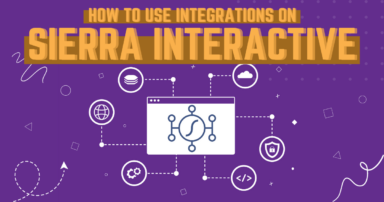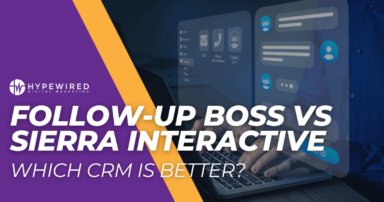Because real estate is an ever-evolving industry, staying ahead of the curve and being informed regarding lead generation strategies is crucial. The two main methods are pay-per-click (PPC) advertising and organic lead generation tactics.
The first step in examining these two approaches is understanding their differences. Pay-per-click advertisements allow businesses to quickly reach potential leads using search engine algorithms or other online platforms. On the other hand, organic lead generation involves creating content with relevant keywords and phrases that can draw attention from prospective customers on various digital channels via word of mouth or social media posts.
With the following information in mind, readers should gain insight into which method works best to make an educated decision about capturing new leads to increase their client base and grow their business. Here’s what to know about PPC and organic lead generation for real estate.
Defining PPC & Organic Lead Generation
Pay-Per-Click (PPC) and organic lead generation are two powerful digital marketing techniques real estate professionals can use to increase their online visibility. Digital marketers often compare the effectiveness of PPC vs. organic lead generation in driving website traffic, generating leads, and ultimately closing deals. While both methods have their strengths and weaknesses, understanding the basics of each tool is essential for any business looking to maximize its return on investment in digital marketing.
To illustrate the differences between PPC and organic lead generation, consider a popular analogy: gardening. With PPC, you’re planting seeds using paid ads—in other words, paying for clicks or impressions on Google Ads or Facebook Ads. With organic lead generation, you create an environment conducive to growth by optimizing your content and building relationships through social media engagement. Just like in gardening, there are risks involved with either method; however, when done correctly, they produce desirable results.
When evaluating which type of digital marketing strategy would work best for your real estate business, it’s essential to understand what each approach offers. Pay-per-click (PPC) advertising involves purchasing ad space from search engines like Google or Bing at predetermined rates per click or impression. This allows businesses to target specific keywords related to their industry so that users searching for those terms will be directed toward their website or landing page.
Organic lead generation relies more heavily on SEO tactics like keyword research and link building campaigns rather than direct spending on advertisements. Over time, this helps build brand awareness and trustworthiness among potential customers while improving overall search engine rankings.
Ultimately, it depends on the goals of your real estate business, whether PPC or organic lead generation should be used as part of a comprehensive digital marketing plan. Both approaches offer unique advantages depending on budget constraints and desired outcomes. However, taking advantage of both strategies together may provide the most effective way to connect with potential clients while maximizing ROI.
Advantages of PPC
Pay-per-click (PPC) is an effective form of digital marketing for real estate that offers many advantages. One significant benefit to using PPC campaigns is cost-effectiveness; businesses only pay when a potential customer clicks on their ad, allowing them to enjoy maximum ROI with minimal expenditure. Additionally, because most PPC advertising platforms allow advertisers to target focus groups and individuals based on location, demographics, interests, and more, it’s easy to reach a targeted audience likely to be interested in what they offer.
The immediacy of results available through PPC also makes it a great choice for businesses looking to maximize lead generation quickly. Detailed analytics allows users to track performance metrics like impressions, conversions, and costs associated with each campaign, enabling them to gain insight into which channels are working best so they can make adjustments accordingly. Ultimately, this lets businesses stay ahead of the competition and continually innovate their strategies to drive success.
Advantages of Organic Lead Generation
Organic lead generation is an innovative and powerful way to build relationships with potential customers. Unlike PPC, organic leads are generated by various strategies that don’t require the customer to click on an ad or fill out a form. Instead, content creators must think outside the box when engaging potential buyers through SEO-friendly tactics like blogging, social media posts, eBooks, and more. Here are some key advantages of organic lead generation:
- Cost savings: Organic lead generation eliminates the need for expensive pay-per-click campaigns because you can generate high-quality leads without spending money on ads or sponsored content.
- Builds credibility: By producing relevant content for your target audience, you set yourself up as an authoritative voice in your industry, increasing trustworthiness and credibility with prospects considering your services/products.
- Increases visibility: With organic lead generation tactics like SEO optimization, keyword research, and link building, you increase visibility across different search engines, making it easier for prospects to find you online.
- Creates lasting relationships: Generating organic leads takes time. Once those connections are made, they’ll likely last longer than just one transaction because organic leads see value in what you offer beyond a single purchase or service offering. This creates lasting relationships with customers that can turn into repeat business down the line.
Overall, organic lead generation offers real estate businesses unique opportunities to engage with their target market creatively, making them stand out from competitors and attracting long-term clients instead of just one-off transactions resulting from paid advertising campaigns.
Disadvantages of PPC
When considering the pros and cons of real estate lead generation, it is important to note that PPC has drawbacks. Pay-per-click campaigns are often expensive; costs can quickly add up if not managed carefully. Additionally, there is a steep learning curve associated with this marketing strategy, which requires time and effort to master to ensure your ads reach the right people. Furthermore, competition for clicks on pay-per-click ads is fierce, leading to higher bidding prices and sometimes click fraud.
While PPC real estate lead generation may result in more immediate leads than organic methods, the cost involved means marketers should use it judiciously for long-term success. It’s also worth noting that even though PPC can provide tangible results faster than other strategies, it requires ongoing monitoring and maintenance – making it less appealing for those with limited budgets or resources for their digital marketing efforts.
Disadvantages of Organic Lead Generation
Organic lead generation is, without a doubt, an important part of real estate marketing. However, its drawbacks can also be considerable. Often, these strategies require large investments in time-consuming activities like content creation or real estate SEO campaigns that can be expensive to maintain.
Furthermore, organic lead generation has limited reach due to its reliance on passive methods of acquiring prospects than being able to target specific audiences directly. Finally, the quality of leads acquired through this method can be low because they may have been attracted by generic topics and could potentially lack relevance for those looking for certain properties or services.
Comparing PPC & Organic Lead Generation
Having discussed the disadvantages of organic lead generation, it is important to consider how this marketing strategy compares with pay-per-click (PPC) campaigns. PPC and organic lead generation each have unique characteristics that may make one more suitable than the other, depending on an organization’s goals.
Organic lead generation requires patience and usually takes longer to generate results due to its reliance on search engine optimization (SEO). It also costs less in terms of upfront money because no fees are associated with implementing SEO tactics. Additionally, organic leads tend to be high quality, reflecting a user’s genuine interest in a company or product rather than simply clicking on an advertisement. Conversely, success can take months or even years when relying solely on SEO strategies.
On the other hand, PPC campaigns require little time investment upfront yet often cost significantly more per click compared to organic leads. Clicks from ads don’t always translate into conversions because users sometimes quickly leave websites after landing pages without taking any action. However, PPC provides instant gratification because campaigns can produce results immediately following setup, and bidding adjustments can be made if needed.
When comparing these two strategies, organizations must decide whether short-term gains or long-term investments best suit their objectives. While they share some similarities, understanding their differences helps marketers choose which method will produce the most qualified leads at the lowest cost while still achieving their desired ROI metrics.
Frequently Asked Questions Regarding PPC vs. Organic Lead Generation for Real Estate
How much does it cost to run a PPC campaign?
Understanding the cost of running a pay-per-click (PPC) campaign is essential to any digital marketing strategy. Although PPC can be a great way to generate leads and drive traffic to your website, significant costs associated with this type of advertising could potentially outweigh its benefits if not properly managed. Conduct a thorough cost analysis and budgeting process before launching campaigns to make the most out of a PPC budget.
When analyzing PPC costs for real estate, consider factors like bid prices, click-through rate (CTR), conversion rates, ad placement on search engine results pages (SERPs), and other elements related to optimizing performance. Knowing how much you’re willing to spend per click will help determine the maximum bids needed for each keyword or phrase used in the campaign.
CTRs may vary depending on where ads appear in SERPs and their attractiveness. Therefore, testing different placements and creative formats will help maximize efforts while keeping within predetermined budgets. Understanding what conversion rates need to be achieved based on expected returns helps ensure resources are allocated effectively – ensuring long-term success.
Regarding budgeting for PPC campaigns, having realistic expectations about potential outcomes upfront is critical for creating successful campaigns without overspending unnecessarily. Doing this accurately requires assessing all relevant data from past campaigns, like average CPCs (cost per clicks) by keyword or device type and seasonal trends to forecast future performance more accurately. Establishing benchmarks like these makes it easier to set appropriate limits on spending each month and adjust them throughout the year according to investment needs or opportunities presented by changes in market dynamics.
Considering all these variables before launching a new PPC campaign can save time and money while providing better ROI than relying on guesswork alone would allow.
How long does it take to generate organic leads?
Organic lead generation is an effective way for real estate professionals to generate leads without relying on a pay-per-click (PPC) campaign. Understanding the timeline of organic lead generation can help content marketers and strategists plan their campaigns to maximize results.
When measuring the length of time required for organic lead generation, many factors should be considered. The duration of generating organic leads will depend upon the resources allocated towards building out targeted content and the type of content created. Content strategy, content production, and production and distribution are three key elements to consider when evaluating the timeline of your organic lead generation efforts.
Overall, while exact lengths of time associated with organic lead generation vary greatly due to numerous external factors like industry trends or competition levels within specific markets, having a general understanding of what’s involved at each stage helps establish realistic expectations surrounding any given project’s duration and allows you to refine your approach accordingly until desired outcomes are achieved.
How do I determine which strategy is best for my business?
By understanding the advantages and disadvantages of each lead generation strategy, businesses can more accurately evaluate which option will yield higher returns on investment. They must consider factors like budget constraints and target audience size before deciding.
Companies should also assess whether combining both strategies may yield the greatest success when generating leads. Properly assessing all possible outcomes will ensure businesses make an informed decision regarding their chosen strategy for lead generation that delivers optimal performance while meeting financial requirements.
Choosing Between PPC & Organic Lead Generation For Your Real Estate Business
PPC and organic lead generation for real estate have advantages and disadvantages, requiring careful consideration for the best outcome. Marketers should weigh the cost of running a PPC campaign and the time needed to generate organic leads against the desired results from each strategy.
Measuring success is also key in deciding which path to take, as it explains whether one approach outperforms another. If implemented correctly, both tactics offer benefits that can help drive more engagement and conversions. With this in mind, content strategists must assess what works best for their situation before deciding how to pursue either strategy.

 January 10, 2023
January 10, 2023




